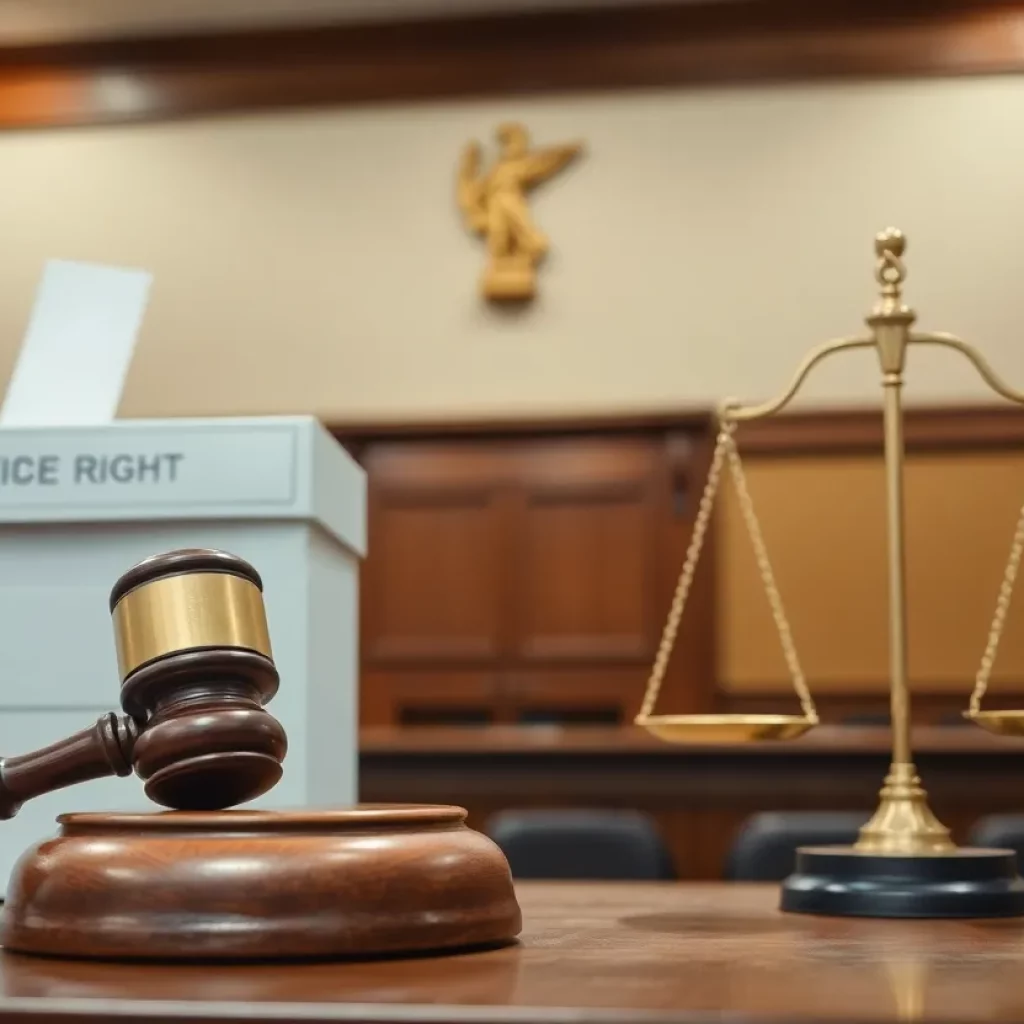News Summary
The Department of Justice has appointed Maureen Riordan as the new chief lawyer in charge of voting issues, marking a significant shift towards stricter voting regulations. With a controversial background in anti-voting initiatives, Riordan’s leadership raises concerns about potential voter disenfranchisement. Current legal actions, including a lawsuit against North Carolina for inaccurate voter registration lists, signal a pivot away from expanding voter access towards tightening regulations under a conservative agenda.
New Leadership at the DOJ’s Voting Section: A Major Shift in Focus
In a surprising move, the Department of Justice (DOJ) has appointed Maureen Riordan as the new top lawyer in charge of voting issues. This appointment is significant, marking a departure from the DOJ’s historical role of defending voting rights to potentially undermining them. Riordan’s previous experience includes a notable tenure as an attorney and activist with the Public Interest Legal Foundation (PILF), widely known for its anti-voting initiatives.
Shifting Paradigms in Voting Rights
PILF has gained notoriety for spreading narratives around illegal voting and lobbying election officials to tighten rules, framing their agenda as a means to enhance election integrity. Riordan’s involvement with PILF aligns her with controversial figures like Cleta Mitchell, a right-wing activist who has played a role in attempts to overturn the results of the 2020 election.
This new appointment is yet to be formally announced, but it suggests a significant pivot in the DOJ’s voting section. Under previous administrations, this section focused on expanding voter access. The shift under Riordan could reflect a campaign strategy aligned with Trump’s vision of addressing voter fraud while simultaneously tightening regulations around voting practices.
Current Legal Actions and Their Implications
As the acting chief of the Voting Section, Riordan is already embroiled in legal actions against states like North Carolina. The DOJ filed a lawsuit asserting that North Carolina violated the Help America Vote Act (HAVA) by failing to maintain accurate voter registration lists. The lawsuit highlights that the state’s voter registration forms did not meet federal requirements, such as the inclusion of necessary drivers’ license numbers or Social Security numbers.
This legal undertaking poses a dual risk. While it aims to ensure election integrity by addressing inaccurate registrations, it also raises concerns that eligible voters could face unwarranted disenfranchisement. The DOJ expects North Carolina to produce a plan within 30 days to remedy the cited violations, which might lead to the removal of those incorrectly labeled as ineligible.
The Conservative Agenda Against Voter Access
The underlying motivations of Riordan’s appointment and the current DOJ actions align with a broader conservative agenda that seeks to impose stricter voting regulations. Riordan’s criticism of the DOJ’s previous voting section reflects her dissatisfaction with what she perceives as favoritism toward Democratic interests. This sentiment is amplified by her opposition to federal legislation aimed at combating voter suppression—including the John Lewis Voting Rights Advancement Act.
Her skepticism about racial discrimination in voting, alongside her previous work with PILF—including an amicus brief regarding New York’s vote-by-mail law—positions her as a polarizing figure in today’s political landscape. The lawsuit against North Carolina captures the essence of this political climate, framing voter registration errors as issues of integrity for the electoral system.
The Bigger Picture: National and Local Implications
This shift in the DOJ’s voting section is not simply a localized issue; it’s reflective of a national strategy under the Trump administration aimed at redesigning the Civil Rights Division to enforce stricter measures against perceived voting misconduct. This comes at a time when states, particularly under new Republican-controlled boards, are scrutinized for their handling of voter registration processes.
As the DOJ continues down this path, the consequences for eligible voters remain uncertain. The potential for erroneous removals from voter rolls raises significant questions about the balance between preventing fraud and ensuring that every citizen has the right to participate in the democratic process.
Deeper Dive: News & Info About This Topic
HERE Resources
Controversy Erupts Over Withdrawal of U.S. Attorney Nominee
Additional Resources
Author: STAFF HERE CHARLESTON
The CHARLESTON STAFF WRITER represents the experienced team at HEREcharleston.com, your go-to source for actionable local news and information in Charleston, Charleston County, and beyond. Specializing in "news you can use," we cover essential topics like product reviews for personal and business needs, local business directories, politics, real estate trends, neighborhood insights, and state news affecting the area—with deep expertise drawn from years of dedicated reporting and strong community input, including local press releases and business updates. We deliver top reporting on high-value events such as the Spoleto Festival USA, Charleston Wine + Food Festival, and the MOJA Festival. Our coverage extends to key organizations like the Charleston Metro Chamber of Commerce and the Charleston Museum, plus leading businesses in tourism and maritime industries that power the local economy such as South Carolina Ports Authority and the Charleston Visitor Center. As part of the broader HERE network, including HEREaiken.com, HEREbeaufort.com, HEREchapin.com, HEREcharleston.com, HEREclinton.com, HEREcolumbia.com, HEREgeorgetown.com, HEREgreenwood.com, HEREgreenville.com, HEREhiltonhead.com, HEREirmo.com, HEREmyrtlebeach.com, HEREnewberry.com, HERErockhill.com, HEREspartanburg.com, HEREaustin.com, HEREcollegestation.com, HEREdallas.com, HEREhouston.com, and HEREsanantonio.com, we provide comprehensive, credible insights into South Carolina's dynamic landscape.










